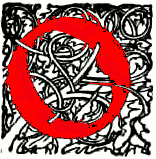 F all the resources of government, none are
so wastefully employed as its powers of
conferring honour. This is true of nearly all
countries. In Great Britain the waste is not
occasioned by profusion, but by caprice, uncertainty, irrelevancy. The king (it was in George
III's time) is asked to give a right of going
through the park to some gentleman. "No, no,"
replies the king, "I cannot do that; but you
may make him an Irish baron." The above is
not an unfavourable specimen of the way in
which honours have been granted.
F all the resources of government, none are
so wastefully employed as its powers of
conferring honour. This is true of nearly all
countries. In Great Britain the waste is not
occasioned by profusion, but by caprice, uncertainty, irrelevancy. The king (it was in George
III's time) is asked to give a right of going
through the park to some gentleman. "No, no,"
replies the king, "I cannot do that; but you
may make him an Irish baron." The above is
not an unfavourable specimen of the way in
which honours have been granted.
There are many points worthy of notice as regards this subject.
First, there is the foolish idea that men do not care for honours. This is an entire mistake. There is nothing in the world they care for more.
Then there is the delusion that the granting of many honours would weaken the value of them. At present, when what few honours are granted, are given for the most trivial and inadequate reasons, these honours have anything but their full value. Of course, it takes away from the value of a peerage when a man is made a peer because he is rich, and because he has fought party battles in his county or his borough, with liberality and vigour. Everybody feels that that is not a service done to the state; and accordingly the honour loses much of its value and its dignity.
The same with knighthood. If that honour is given as a mere formality because a man has presented an address, or has received a sovereign at dinner, the honour in question is proportionately lowered.
Then it is said, and this is a favourite argument of men in power, that if you oblige one man by giving him an honour, you disoblige three or four persons who think that they have exactly similar claims. There is some truth in this, but it must be remembered that you keep those three or four persons in a state of hopeful expectation that if they work on, they too will eventually gain the honour. There is no telling the quantity of good service that a government might get from people, if these people only saw that they had a fair chance of receiving honour for good service. And frequently there is no other way of paying them, for they do not want money. Now, as the tendency in modern times is to make government more and more difficult, it behoves government to husband all its resources, and to make the best use of them.
I pass to another head of the subject state which has many colonies should seek to win its eminent colonists, and to knit the infant to the parent state by a careful distribution of honours in these colonies. When an eminent colonist can say, not merely Civis Anglicanus sum, but Eques Anglicamis sum, depend upon it, he is sure to become an attached citizen to the imperial government. The Privy Council of England should be enriched and enlightened by the introduction into it of some of the most distinguished colonists, who, when in this country, should be able, as it were, to have some voice in the government.
Now, to another branch of the subject. Why should we chiefly honour and dignify the mem- bers of one or two professions or callings, to the exclusion of the rest ? Why should many lawyers and soldiers be promoted to honour, while doctors, and surgeons, men of science, men of letters, great merchants, great employers of labour, distinguished civil servants, are for the most part left out in the cold? In France they could have their Baron Dupuytn while in England there is not an instance of a great medical man being raised to the peerage, though it is said Sir Astley Cooper much desired that honour.
Again, as to men of science, art, and literature, people say it would be so difficult to found an order of merit for such men. I cannot see the difficulty. It appears to me that the world knows very well, or nearly well enough, who are the distinguished men in science, art, and literature. Some mistakes would of course be made; but, upon the whole, the public would take care that the dispensers of honours to this class of men should not go far wrong.
There is another very important point connected with this subject, namely, that this just dispensation of honours would tend to correct the inordinate craving after wealth, which is the sin and sorrow of the present day. Moreover it would mitigate the frantic desire of getting into Parliament which besets so many men who are unfit for that vocation, but who discern in it the only way of arriving at personal honour and social distinction. [24-27]
Bibliography
[Helps, Sir Arthur]. Brevia: Short Essays and Aphorisms by the Author of “Friends in Council”. Boston: Roberts Brothers, 1871. The reverse of the title page has the following: “Chiswick Press: — printed by Whittingham and Wilkins, Tooks Court, Chancery Lane [London].”
Last modified 5 December 2011